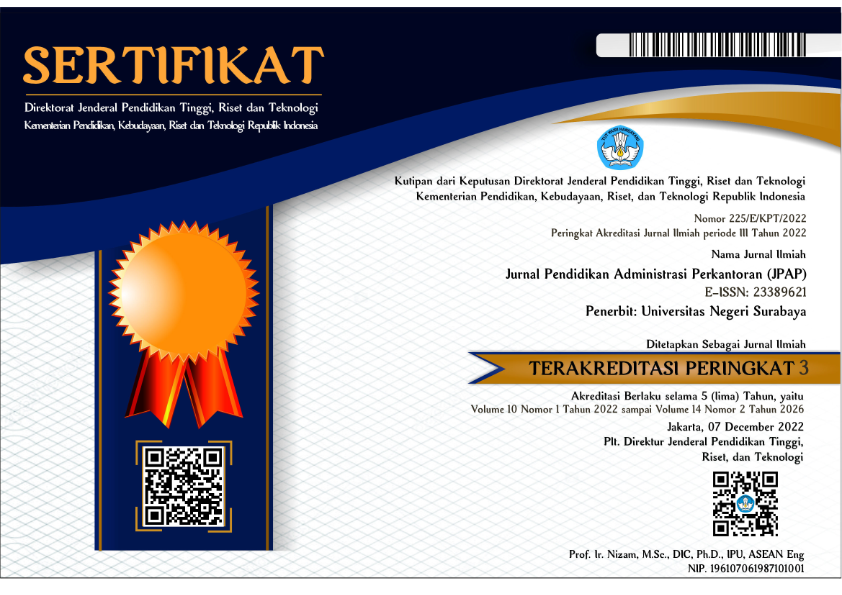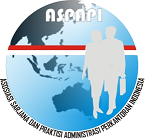THE INFLUENCE OF DIGITAL COMPETENCE ON EMPLOYEE AGILITY THROUGH TASK AUTONOMY AMONG ADMINISTRATIVE STAFF
DOI:
https://doi.org/10.26740/jpap.v12n3.p240-350Abstract
Phenomenon/Issue: The Fourth Industrial Revolution requires employees to adapt rapidly to technological changes, shifting from manual to digital work environments
Purpose: To analyze the influence of digital competence on employee agility through task autonomy, based on the Theory of Work Adjustment (TWA)
Novelty: The integration of digital competence and task autonomy within the framework of TWA to explain employee agility—a relatively unexplored relationship in the context of administrative staff in higher education institutions
Research Methods: Explanatory quantitative approach using questionnaires distributed to 146 administrative staff at the State University of Surabaya. Data were analyzed using PLS-SEM (Partial Least Squares-Structural Equation Modelling).
Results: The study found that digital competence significantly enhances employee agility. It also positively influences task autonomy, which in turn has a significant impact on employee agility. Moreover, task autonomy effectively mediates the relationship between digital competence and employee agility, highlighting its crucial role in supporting employees' adaptability in a digital work environment
Research Contributions: Provides empirical support for the importance of enhancing digital competence and task autonomy to improve employee agility in response to digital transformation, particularly within the context of public university administration in the era of the Fourth Industrial Revolution
 Abstract views: 164
,
Abstract views: 164
, PDF Downloads: 291
PDF Downloads: 291









